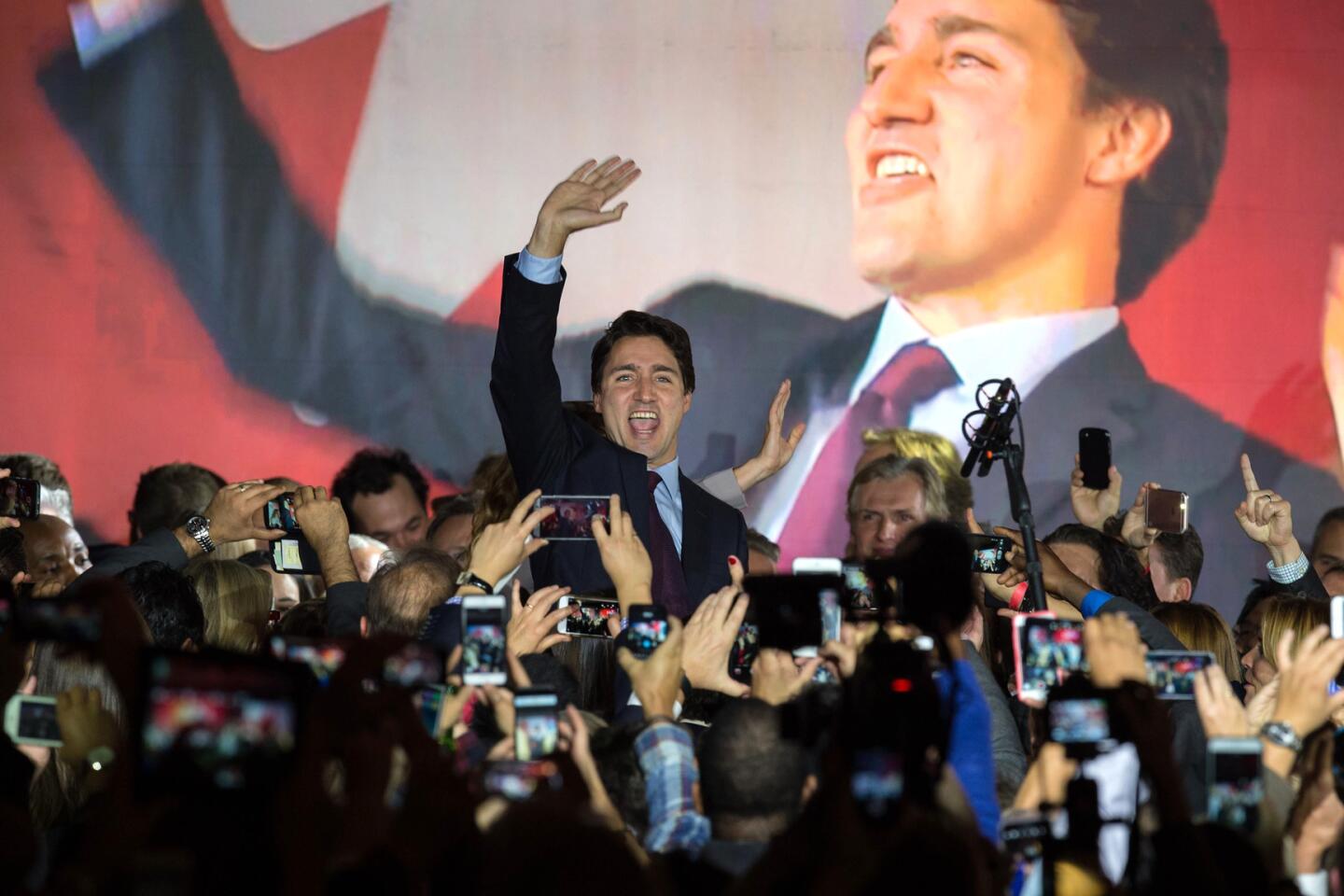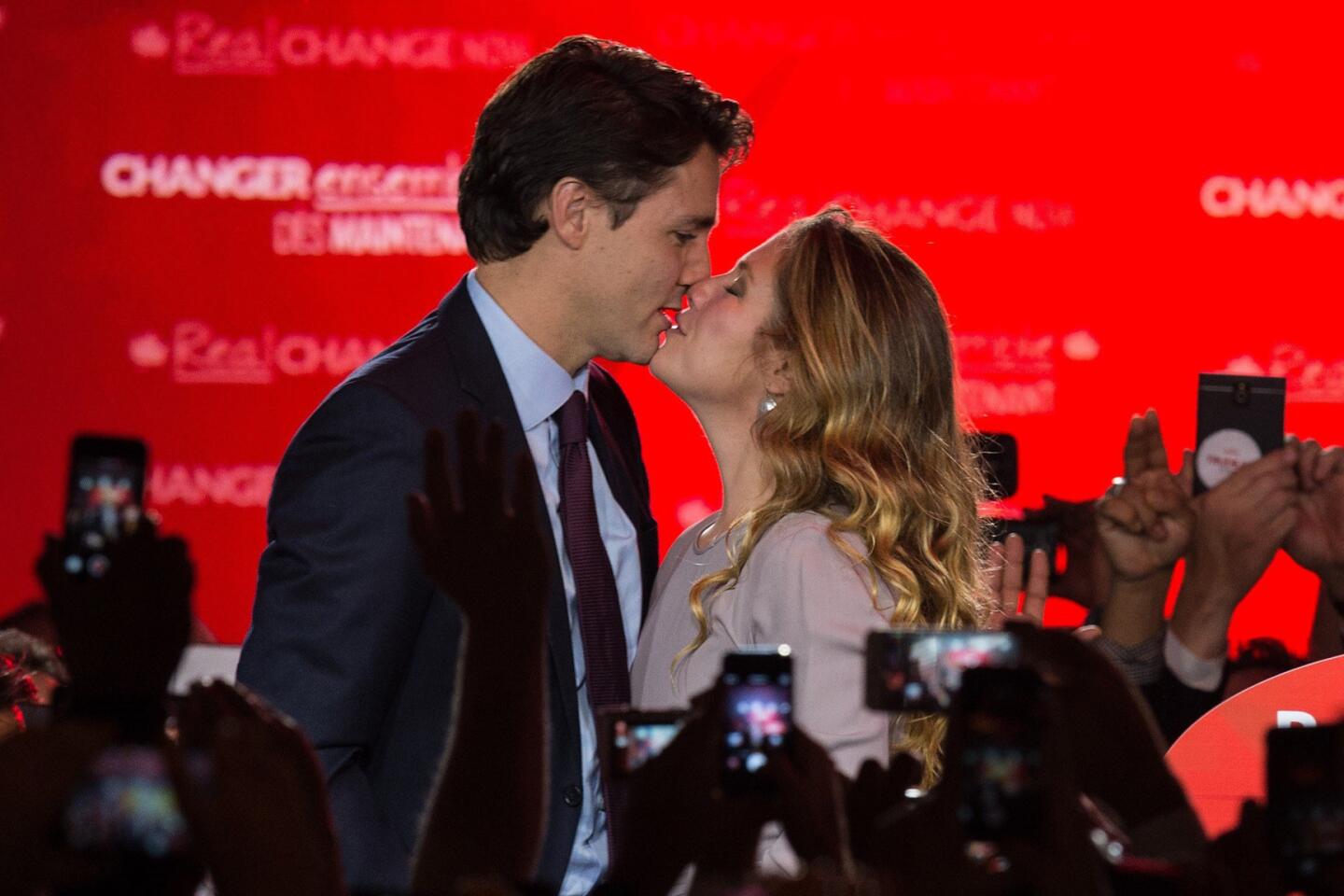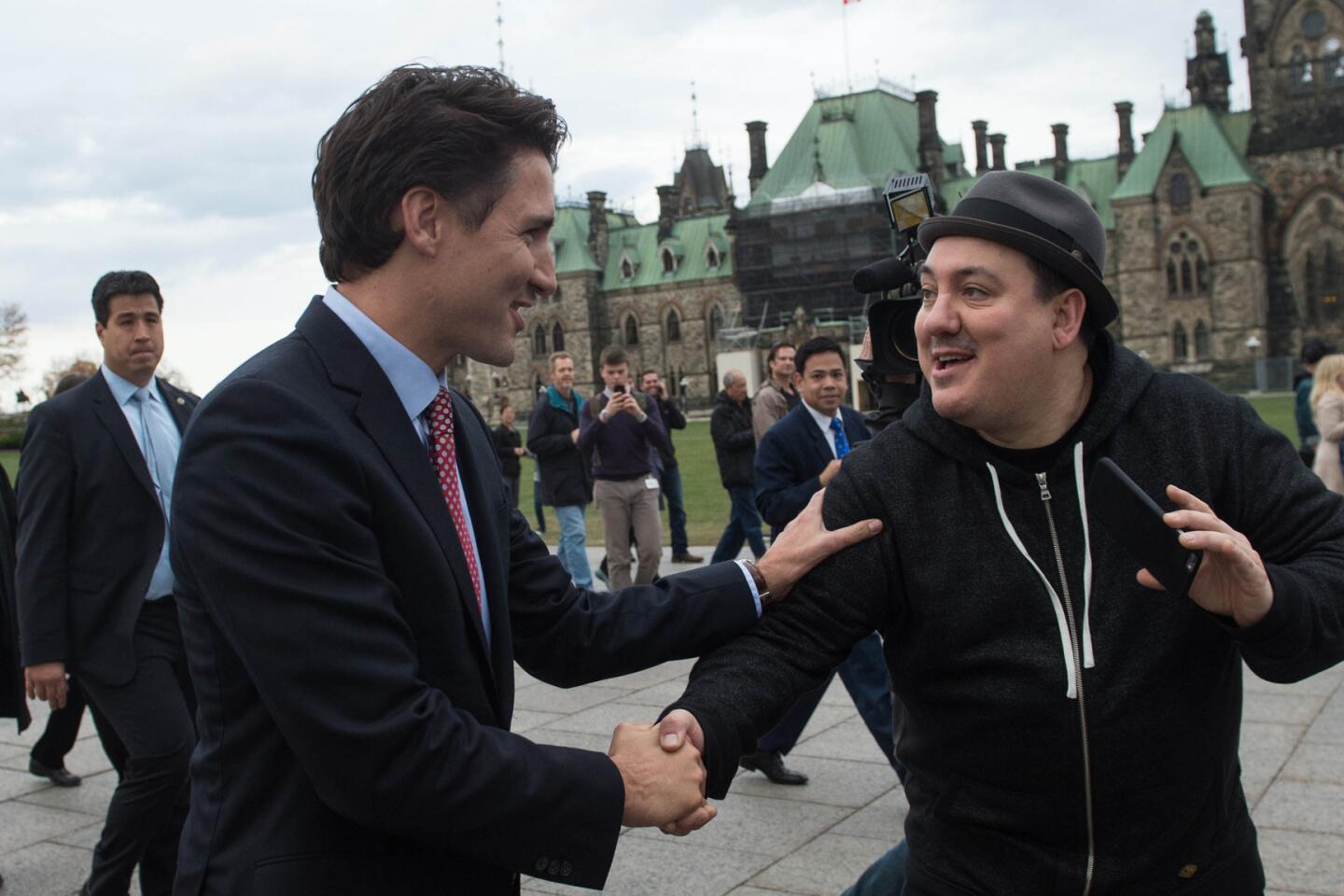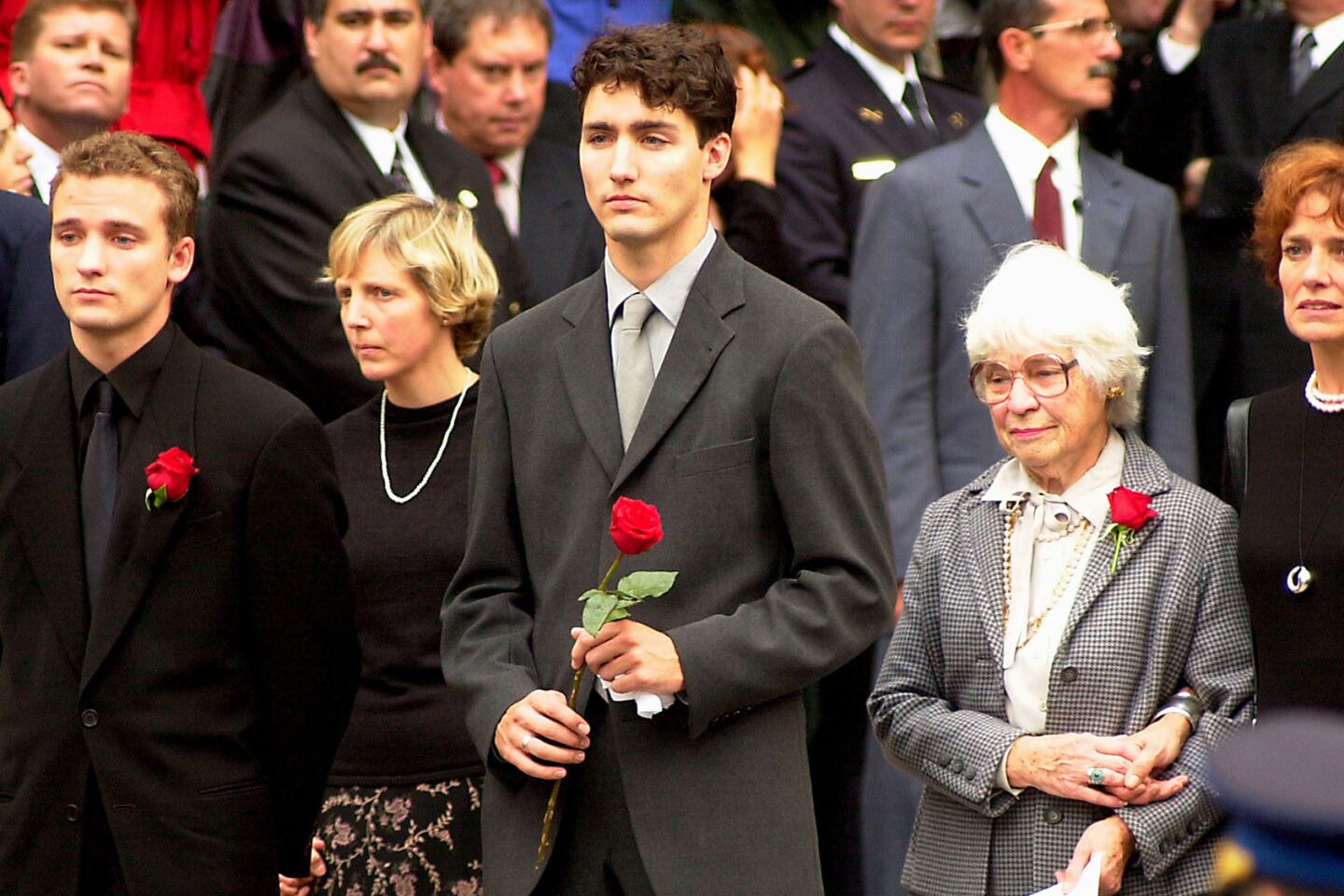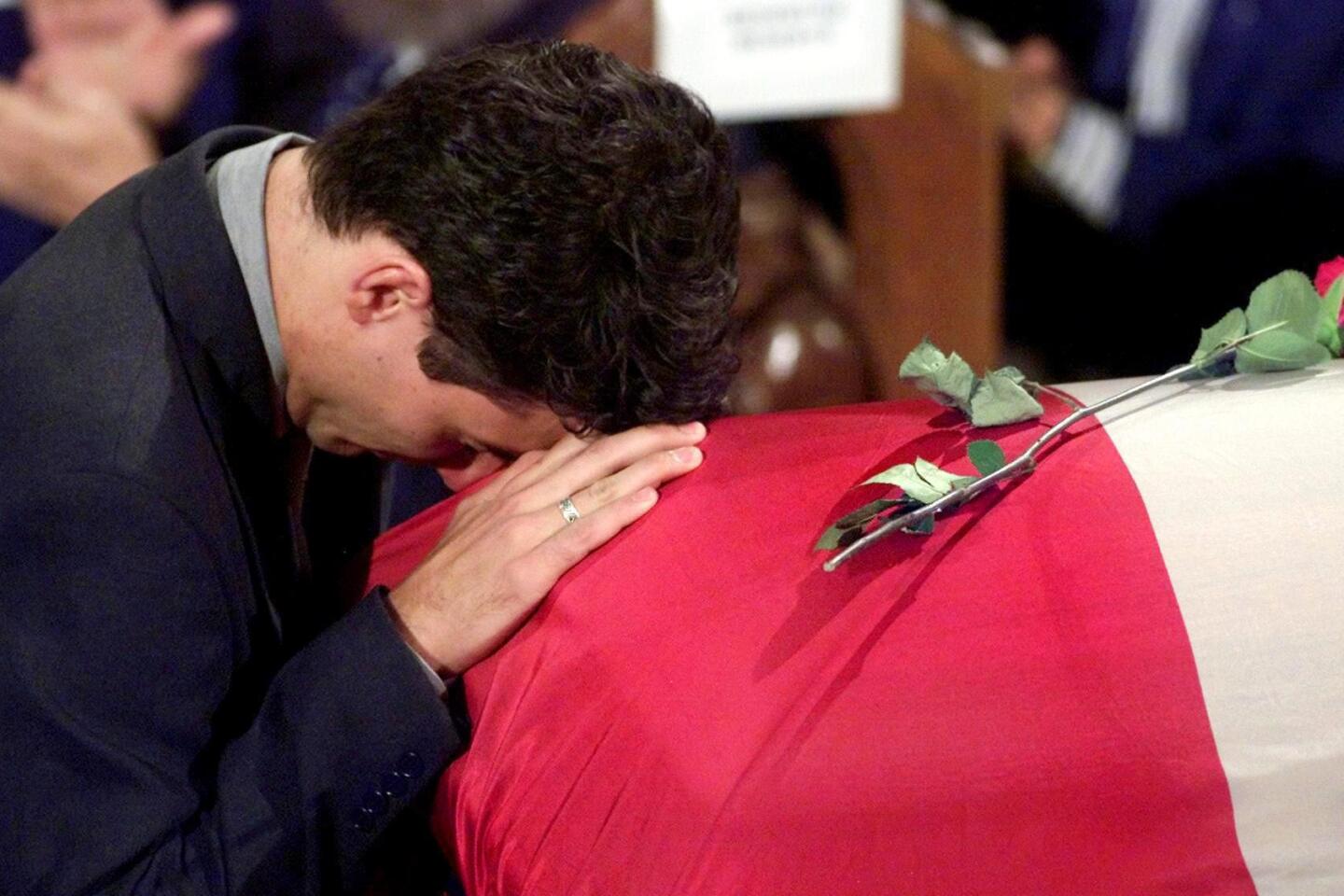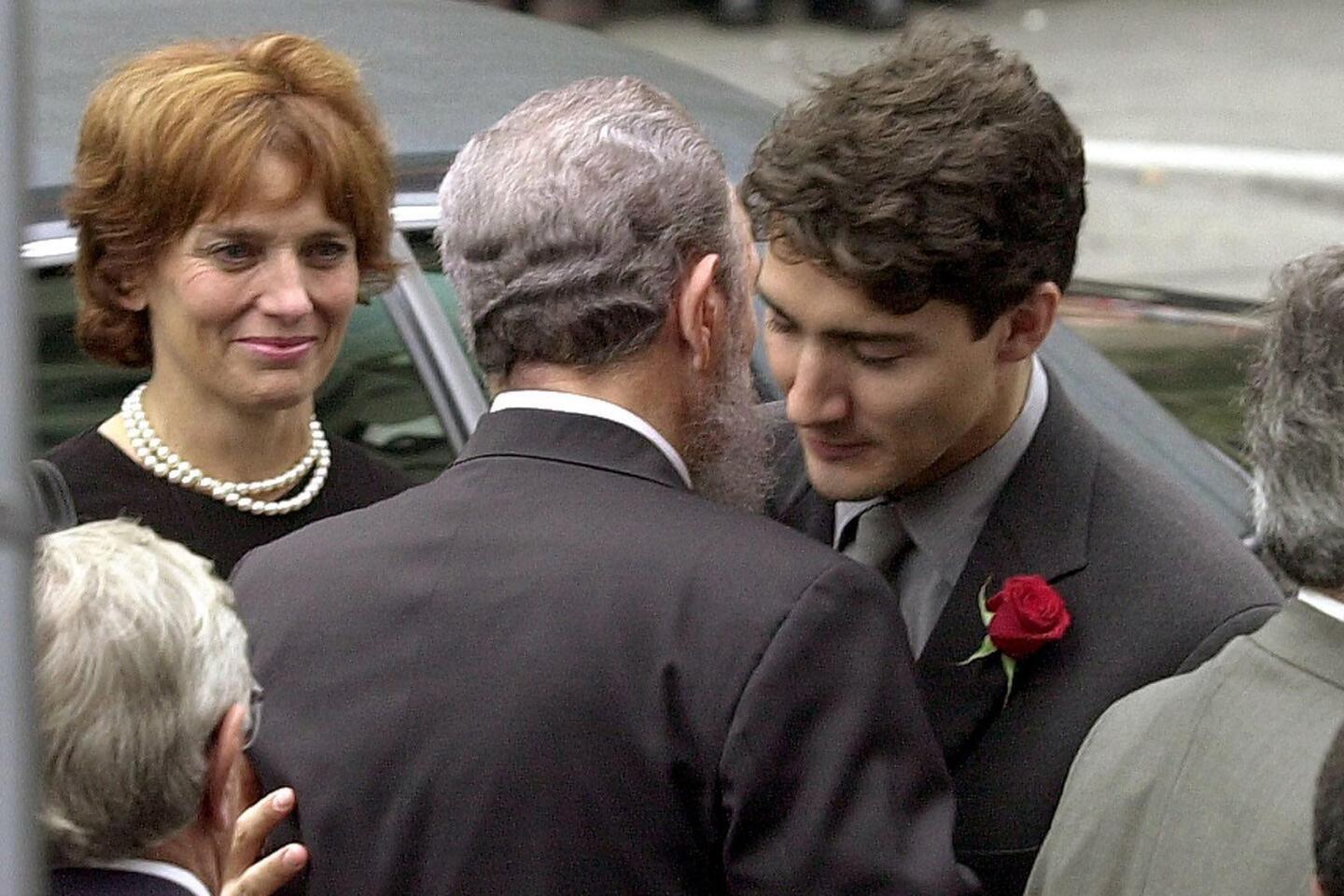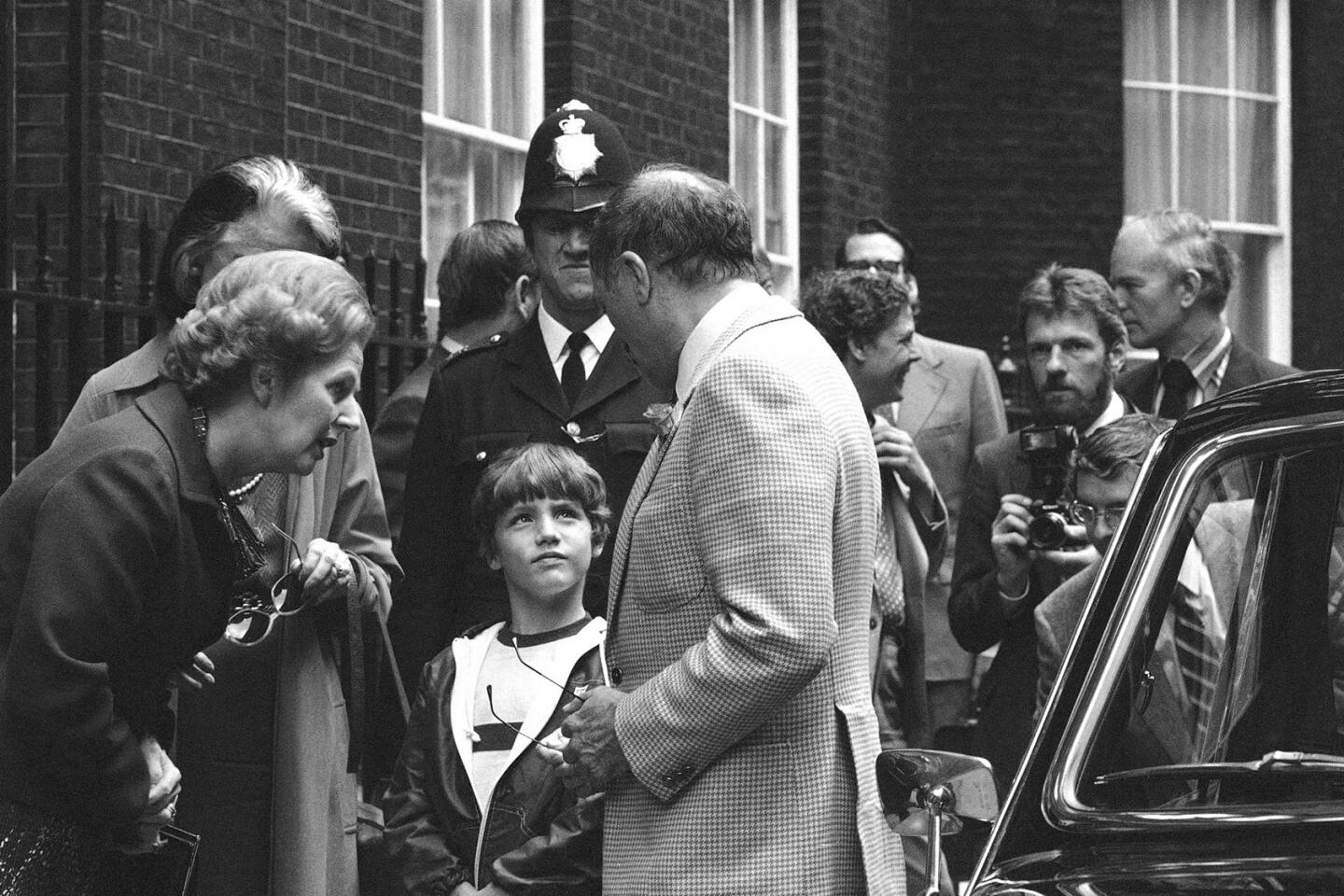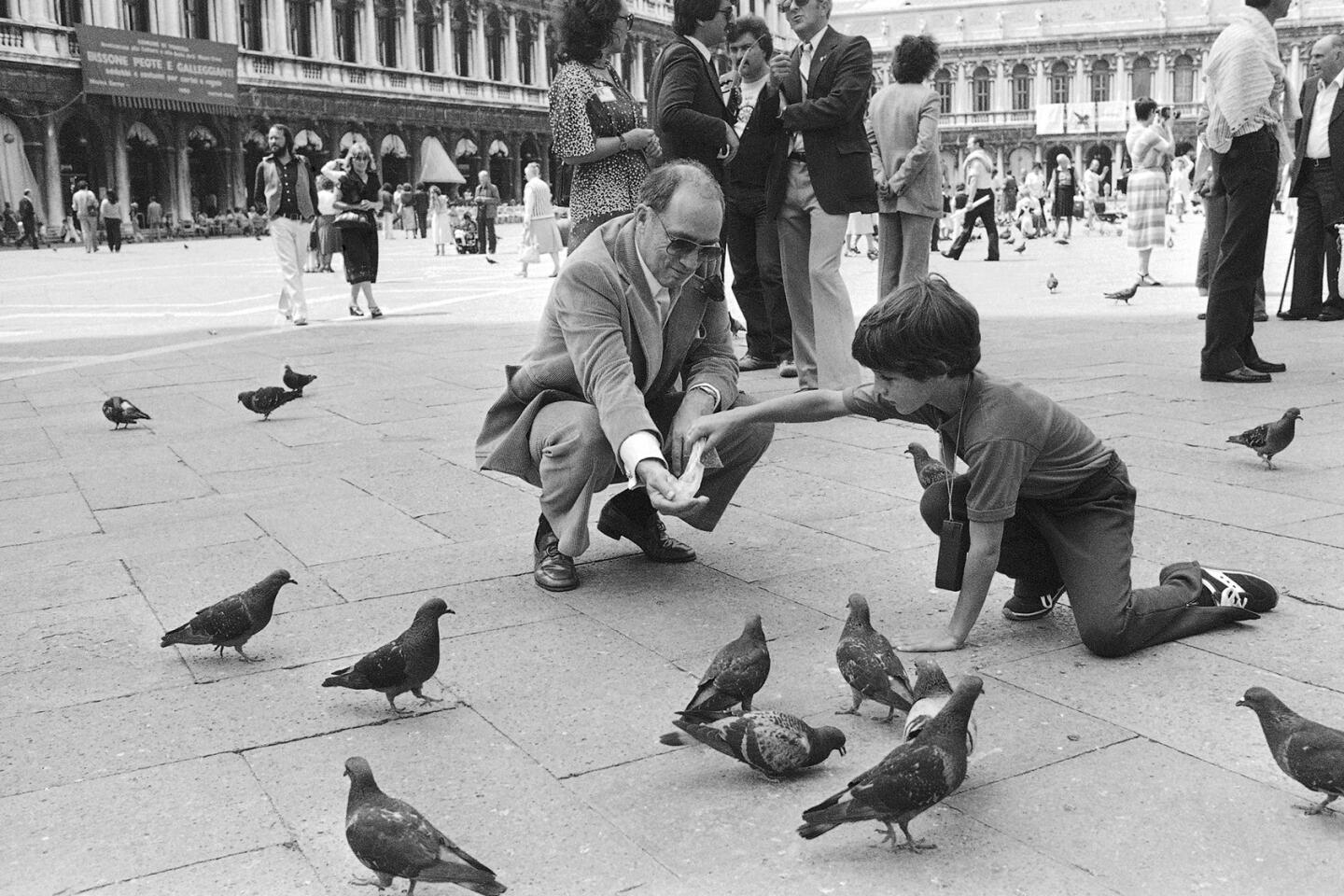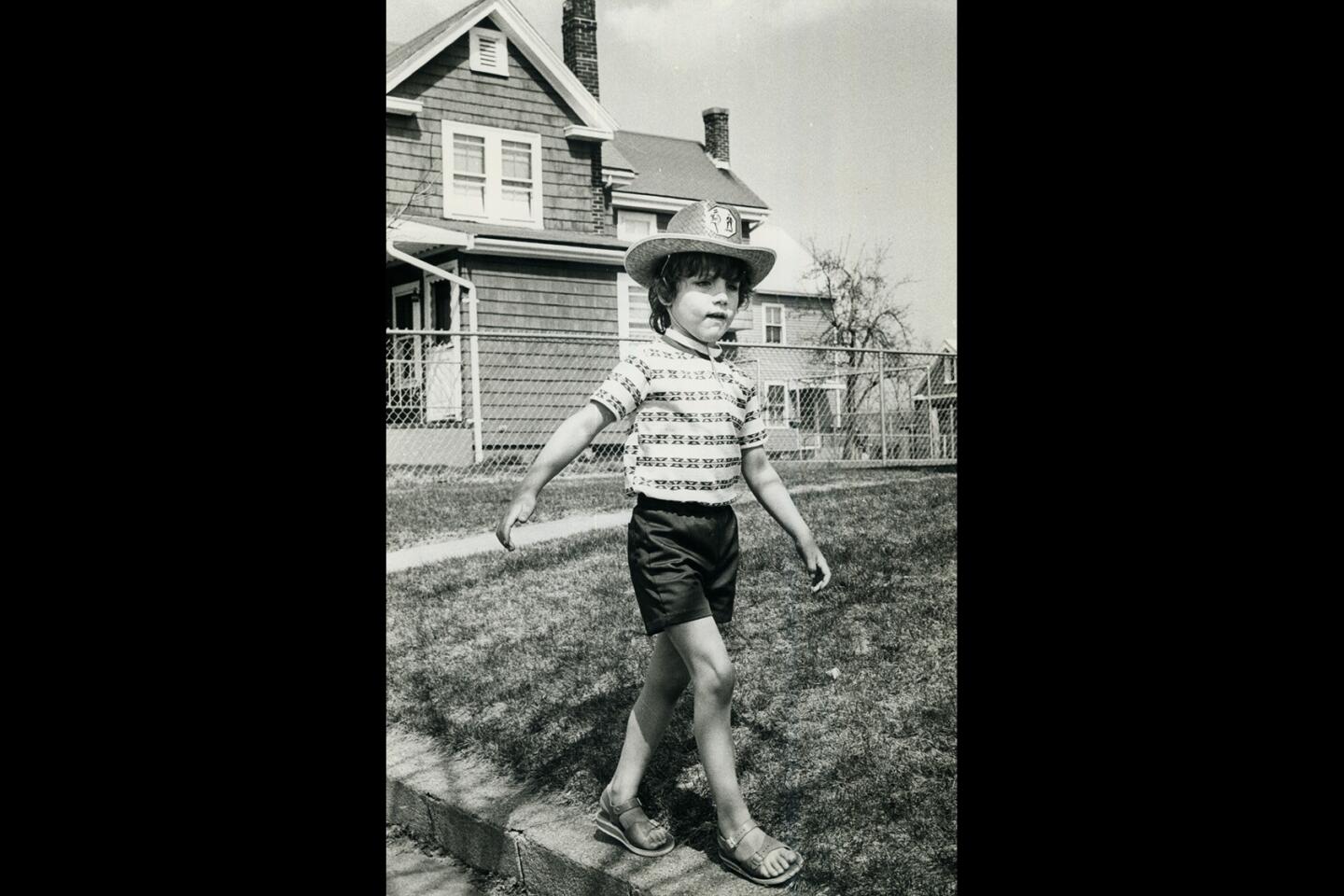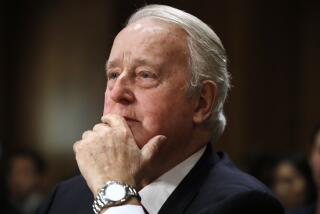All in the family: A Trudeau again will lead Canada
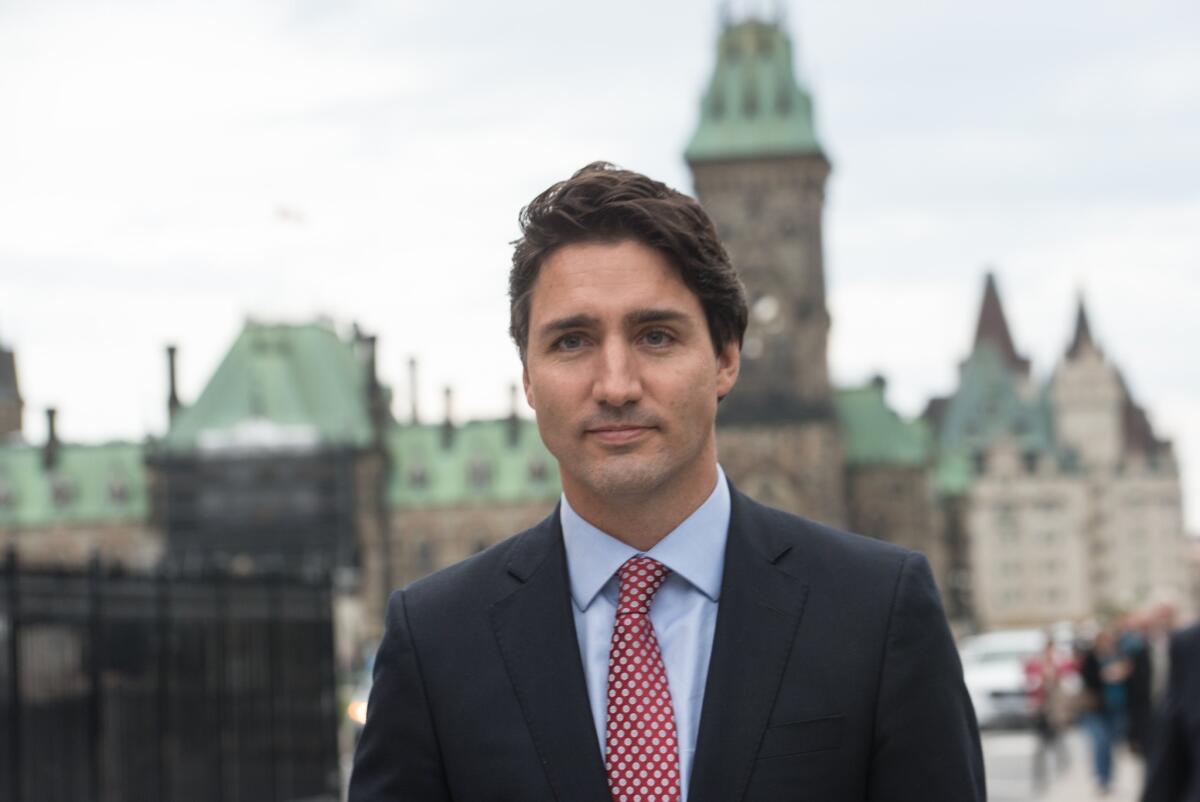
Canadian Prime Minister-designate Justin Trudeau walks from Parliament to give a news conference in Ottawa on Oct. 20 after winning the general election.
For many people, Canada’s Prime Minister-designate Justin Trudeau may be a novelty.
Here’s one reason: With this week’s election victory, the Liberal Party’s Trudeau came bounding into power to end the decade-long reign of Canada’s Conservative Prime Minister Stephen Harper.
But here’s another: Trudeau, at 43, is four years younger than Barack Obama was when he was first elected U.S. president in 2008. He has a Hollywood-thick head of hair, Buzz Lightyear cheekbones and a megawatt smile.
A good number of people have responded accordingly by Googling photos of Trudeau shirtless.
But Canadians have known about Trudeau since his birth. As much as he represents the new, and a repudiation of Harper’s conservative policies, Trudeau is closely tied to one of Canada’s most famous 20th century politicians: his father.
‘Trudeaumania’
In the late 1960s, Canada -- not historically one of the world’s most electrifying political frontiers -- buzzed with “Trudeaumania.”
Pierre Elliott Trudeau, then Canada’s justice minister, declared in 1967 that “the state has no place in the bedrooms of the nation” and pushed to liberalize laws on divorce, abortion and homosexuality.
The raffish, balding cosmopolite then became prime minister in 1968 -- inaugurating a dynamic era in Canadian politics during which he socialized with celebrities, needled his American neighbors in the White House and promised a “Just Society” built on a European-style welfare state.
He married a woman almost 30 years younger than he, Margaret Sinclair, and had three sons with her: Justin, Sacha and Michel. (Their marriage later collapsed and Trudeau took custody.)
In 1972, when Justin Trudeau was just 4 months old, then-U.S. President Nixon had a toast to Pierre Trudeau’s son during a state visit to Ottawa, Canada’s capital: “Tonight we’ll dispense with the formalities. I’d like to toast the future prime minister of Canada: to Justin Pierre Trudeau.”
Early life
During his father’s 15 years in power, Justin Trudeau spent his boyhood years at 24 Sussex Drive, the prime minister’s official residence. (The residence is officially called Gorffwysfa, but Canadians have no idea how to pronounce that.)
“It might be that no Canadian has lived a life as comprehensively chronicled as Justin Trudeau,” wrote the Toronto Star’s Jim Coyle. “From the volumes written by and about his family, it’s almost possible to chart, by the week, the activities and whereabouts of the little boy code-named ‘Maple 3’ by the prime minister’s RCMP security detail.”
At the residence, Pierre Trudeau taught his sons to box and “would drill them in French in history, poetry, religion,” Coyle wrote.
The Trudeaus moved to Montreal after Pierre left politics in the 1980s, where Justin Trudeau later attended McGill University, one of Canada’s most esteemed educational institutions, where he graduated in 1994.
Entrance to politics
Trudeau became a teacher in Vancouver, where he taught French and math, but eventually moved back to Montreal, where he married a Quebec TV and radio host Sophie Grégoire.
In 2000, Trudeau spurred national speculation over an entrance to politics when he delivered a stirring eulogy for his father, who died after battling prostate cancer and Parkinson’s disease. (Read the Los Angeles Times’ eulogy for Pierre Trudeau.)
“He won’t be coming back anymore,” Trudeau, then 28, told the mourners. “It’s all up to us, all of us, now.”
Through the mid-2000s, Trudeau undertook advocacy work and speaking engagements across Canada on issues including volunteerism and avalanche safety.
He entered Parliament in 2008 after winning a Quebec riding -- as electoral districts are called in Canada -- for the Liberal Party, which selected him as its leader in 2013.
A sweeping upset
2015 brought a bitter campaign in Canada, with Harper’s opponents accusing him of heavy-handed rule and Islamophobia.
Trudeau’s Liberals, which won just 34 seats in the last election, won a decisive parliamentary majority and claimed 184 seats Monday night.
Trudeau, who plans to take the oath of office and appoint his ministers Nov. 4, has already promised to withdraw Canada’s participation in the bombing campaigns against Islamic State in the Middle East that had been carried out under Harper’s government.
“You can appeal to the better angels of our natures, and you can win while doing it,” Trudeau said in his victory speech. “We beat fear with hope. We beat cynicism with hard work. We beat negative, divisive politics with a positive vision that brings Canadians together.”
Follow @MattDPearce
ALSO:
In China, strong-arm tour guides are forcing people to shop
Syrian President Assad meets with Vladimir Putin in Moscow to discuss military operations
Southeast Asia fires may be emitting more greenhouse gases than the entire U.S.
More to Read
Sign up for Essential California
The most important California stories and recommendations in your inbox every morning.
You may occasionally receive promotional content from the Los Angeles Times.
